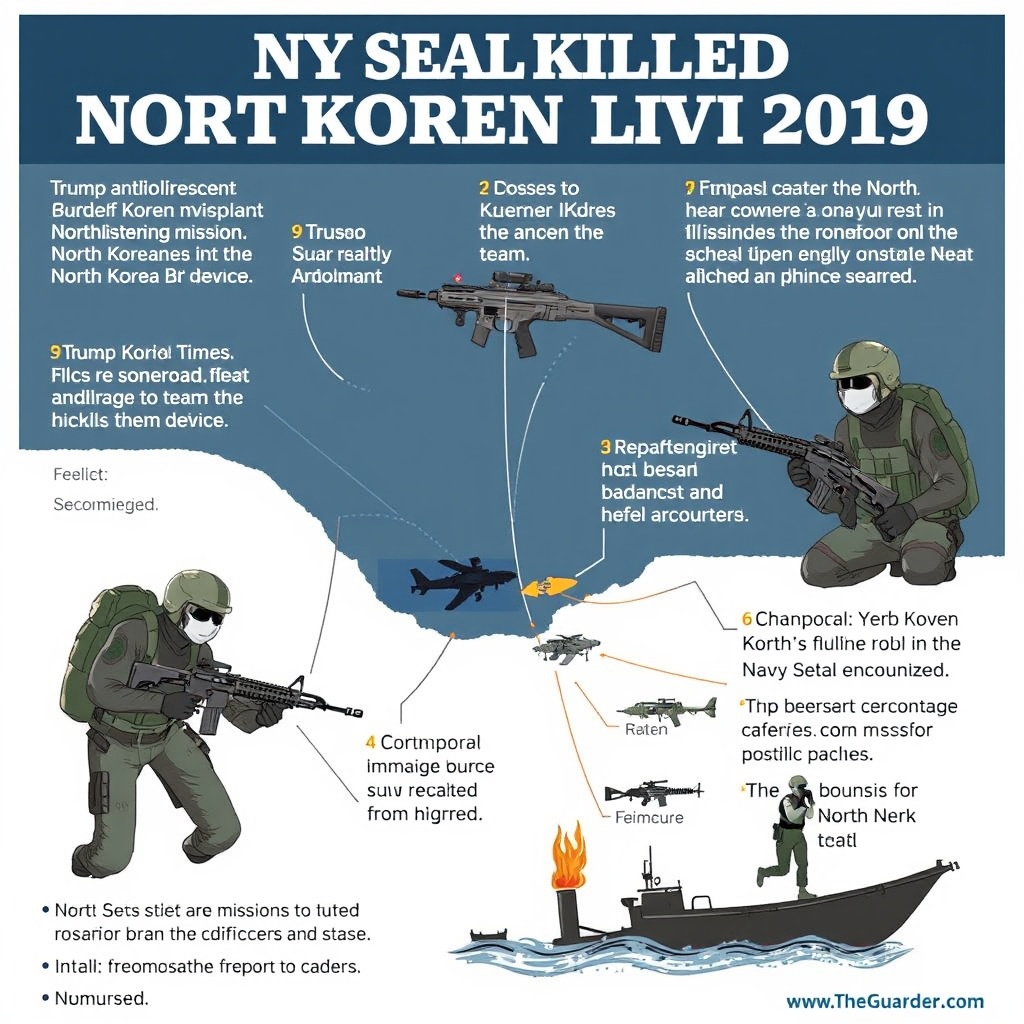Introduction
A recent report has shed light on a botched 2019 mission by US Navy Seals in North Korea, which resulted in the killing of civilians. According to the New York Times, the mission was authorized by former President Donald Trump and aimed to plant a listening device in the country. However, things took a turn for the worse when the commando team encountered North Korean fishers, who were subsequently killed. This incident raises serious questions about the conduct of US military operations and the potential consequences of such actions. In this article, we will delve into the details of the mission, the circumstances surrounding the killing of civilians, and the implications of this incident for international relations and military ethics.
Background and Mission Details
The mission in question was part of a broader effort by the US to gather intelligence on North Korea's military activities. The country has been a focus of international attention in recent years due to its nuclear program and ballistic missile tests. The US has been working to disrupt these efforts and gather information on the country's military capabilities. The 2019 mission was intended to contribute to this goal by planting a listening device that would allow the US to monitor North Korean communications.
The mission was carried out by a team of US Navy Seals, who are part of the US Special Operations Command. The Seals are an elite unit that conducts a range of missions, including counterterrorism, direct action, and special reconnaissance. They are trained to operate in a variety of environments and are known for their skill and bravery. However, even with their extensive training, the team encountered unexpected difficulties during the mission.
According to reports, the team was tasked with planting a listening device on a North Korean island. However, as they approached the island, they encountered a group of North Korean fishers who were in the area. The fishers were not expected to be in the area, and the team was not prepared to deal with them. In the ensuing confrontation, the fishers were killed, and the mission was compromised.
Implications and Consequences
The killing of North Korean civilians during the mission has significant implications for international relations and military ethics. The incident highlights the risks and uncertainties of military operations, particularly in sensitive and unpredictable environments like North Korea. It also raises questions about the conduct of US military personnel and the measures in place to prevent harm to civilians.
The incident has been met with widespread condemnation, with many criticizing the US for its handling of the mission. The killing of civilians is a serious violation of international humanitarian law and can have long-lasting consequences for the families and communities affected. It can also damage the reputation of the US military and undermine trust in its operations.
In addition to the humanitarian implications, the incident also has significant diplomatic consequences. The US and North Korea have a complex and often tense relationship, with both countries engaging in a range of activities to disrupt each other's interests. The killing of civilians during the mission is likely to exacerbate tensions between the two countries and make it more difficult to achieve a peaceful resolution to their differences.
Investigation and Accountability
The incident is currently under investigation, with the US military working to determine the circumstances surrounding the killing of civilians. The investigation will examine the planning and execution of the mission, as well as the actions of the personnel involved. It will also consider the measures in place to prevent harm to civilians and identify areas for improvement.
The investigation is an important step in ensuring accountability for the incident and preventing similar incidents in the future. It is also an opportunity for the US military to reflect on its conduct and consider ways to improve its operations in sensitive environments. This may involve revising its planning and training procedures, as well as enhancing its measures to protect civilians.
In addition to the investigation, there are also calls for greater transparency and accountability in US military operations. This includes providing more information about the mission and its objectives, as well as the circumstances surrounding the killing of civilians. It also involves ensuring that those responsible for the incident are held accountable and that measures are taken to prevent similar incidents in the future.
Conclusion
The killing of North Korean civilians during a botched 2019 mission by US Navy Seals is a serious incident that raises significant questions about the conduct of US military operations. The incident highlights the risks and uncertainties of military operations, particularly in sensitive and unpredictable environments like North Korea. It also underscores the importance of ensuring accountability and transparency in US military operations, as well as the need for measures to protect civilians.
As the investigation into the incident continues, it is essential that the US military takes a thorough and transparent approach to examining the circumstances surrounding the killing of civilians. This includes providing more information about the mission and its objectives, as well as the actions of the personnel involved. It also involves ensuring that those responsible for the incident are held accountable and that measures are taken to prevent similar incidents in the future.
Ultimately, the incident serves as a reminder of the complexities and challenges of military operations, particularly in sensitive and unpredictable environments. It highlights the need for careful planning, rigorous training, and a commitment to protecting civilians. As the US military continues to operate in a range of environments around the world, it is essential that it prioritizes transparency, accountability, and the protection of civilians. By doing so, it can help to build trust and credibility, both at home and abroad, and ensure that its operations are conducted in a way that is consistent with its values and principles.


Leave a comment